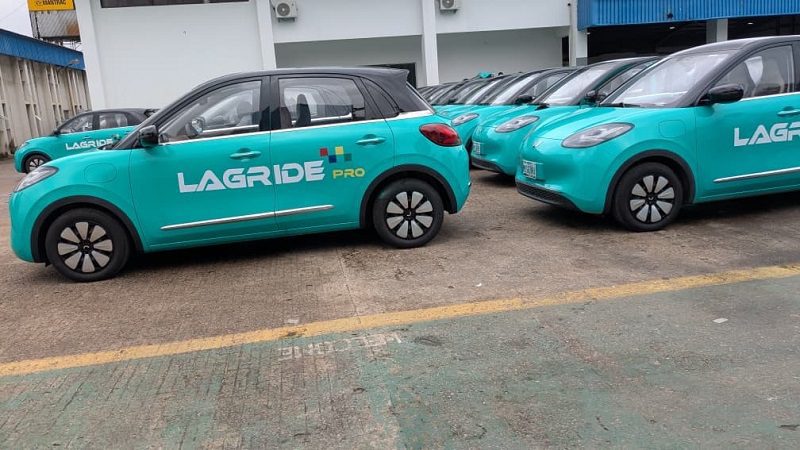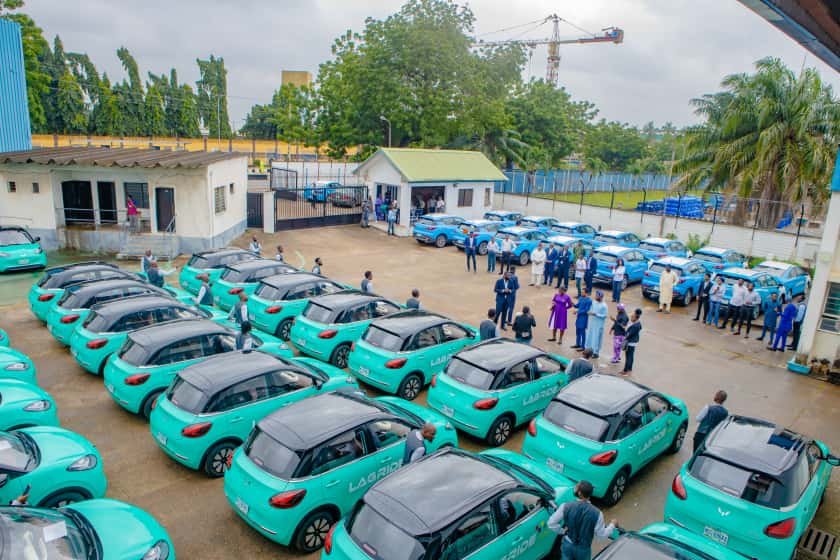Physical Address
60 Ekwema Cres, Layout 460281, Imo
Physical Address
60 Ekwema Cres, Layout 460281, Imo

Last September, LagRide rolled out 100 brand-new fully electric vehicles (EVs), hoping their high-performing drivers would power this exciting shift. But not everyone’s thrilled. Drivers have been raising concerns as LagRide’s new EVs impact performance in ways they didn’t expect.
A lot of these top drivers say it feels more like a punishment than a reward. They’re finding that the EVs don’t have the efficiency or durability needed to keep up their usual high standards. One of the biggest headaches? Not enough charging stations. This forces drivers to spend hours waiting in long lines just to recharge, which wastes valuable time.
Read Next: CBN Labels Zuldal Microfinance Bank as an Illegal Financial Institution
“As of last night, I couldn’t charge my car because there were around 30 cars queued on Victoria Island. I didn’t even get a full charge, and many other drivers are going through the same struggle. How am I supposed to work when charging feels like a battle?” one driver said.

Even when they finally manage to surface some battery power, the EVs still drain quickly, especially when the air conditioning is on. LagRide claims one full charge should last a whole day, but drivers say they need to recharge at least twice daily. That puts a serious limit on how far they’re willing to travel since they need to stick close to charging spots.
“The battery drains super fast. From what I’ve seen, on a busy day, you’ll need two full charges. You can’t really take the car to places like Ikorodu or Epe because it will likely run out of juice and need towing back. Turn on the AC, and the battery drops one per cent every three minutes,” another driver explained.
Business-wise, some drivers say the smaller EVs are hurting their earnings and the relationships they’ve built with clients over the years. One mentioned how many of his customers are travellers heading to the airport looking for bigger SUVs that suit their luggage and status. The smaller electric cars just aren’t cutting it.
“They call us top-performing, but they’re punishing us with these EVs that lower our earnings. They want to push their electric cars, so why don’t they give the new drivers the EVs and leave our SUVs alone?” one frustrated driver said.
Complaints haven’t been welcomed warmly either. One driver shared how he tried to raise issues with the Relationship Officer but was met with threats and humiliation.
“The RO told me if I don’t want the EV, I should park my SUV and find a new way. He said thousands want to drive for them, so my complaints don’t matter. If I want to work, I have to take the EV. If I don’t, I can leave. I felt really threatened and disrespected,” he said.
LagRide’s response to these concerns has been firm. Their spokesperson, Ifeanyi Abraham, said moving top drivers to the EVs was meant as a reward, not a punishment.
He explained the company picked their best drivers to lead the EV rollout because they wanted disciplined, reliable people to help push Nigeria’s move toward cleaner transport.
“The EVs give financial and operational benefits. They cut out fuel costs, need less maintenance, and promise better long-term profits. Giving an EV to a captain is a sign of trust and empowerment, it’s about managing advanced vehicles that represent the future, not punishing anyone,” Abraham said.
On the battery and charging points issue, Abraham reassured that LagRide is expanding charging stations and that the EV’s current range exceeds what drivers need daily.
“Our EV can cover 333 kilometres on one full charge, enough to last a full day,” he said. He also mentioned that company data doesn’t back up claims about long waits, as there are multiple charging centres with over thirty active ports across the Mainland and Island.
Read Next: Airtel Malawi has Launched 5G Services
Abraham wrapped up by saying LagRide is setting new standards for mobility across Africa through commitment, structure, and accountability. They’re pushing technology, transparency, and training to lift the whole transport ecosystem, despite some resistance from drivers hesitant about change.
“There’s always some pushback when reform comes, but LagRide is making strong progress and remains dedicated to improving livelihoods and supporting Lagos’s mobility future,” he added.
Was this information useful? Drop a nice comment below. You can also check out other useful contents by following us on X/Twitter @siliconafritech, Instagram @Siliconafricatech, or Facebook @SiliconAfrica.